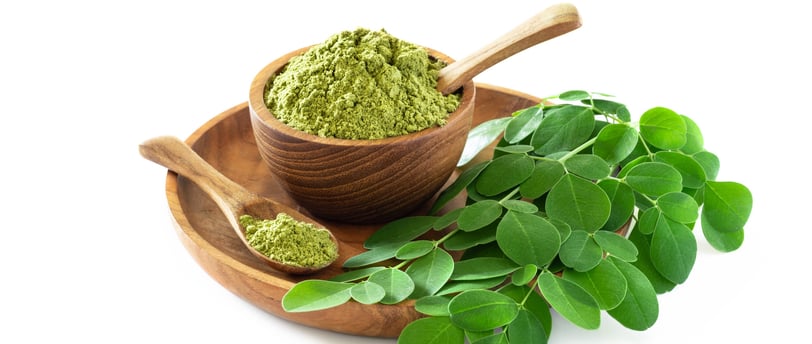Moringa Medicinal plants properties
Moringa, scientifically known as Moringa oleifera, is a versatile and nutrient-rich plant that has been used for centuries for its medicinal properties
12/2/20233 min read


Moringa: Unveiling the Medicinal Properties of a Nutrient Powerhouse
Moringa, scientifically known as Moringa oleifera, is a versatile and nutrient-rich plant that has been used for centuries for its medicinal properties. Native to the Indian subcontinent, Moringa is often referred to as the "miracle tree" due to its numerous health benefits. In this article, we will explore the medicinal properties of Moringa and how it can enhance your overall well-being.
Historical Use of Moringa
The use of Moringa dates back thousands of years, with its origins traced to ancient Ayurvedic medicine. It has been highly regarded for its therapeutic properties and has been used to treat various ailments. Moringa leaves, seeds, and roots have been traditionally used to alleviate inflammation, boost the immune system, promote digestion, and enhance overall vitality.
Nutritional Composition of Moringa
Moringa is a nutritional powerhouse, packed with essential vitamins, minerals, and antioxidants. It is rich in vitamin C, vitamin A, calcium, iron, potassium, and protein. Moringa leaves are particularly nutrient-dense, containing all essential amino acids, making it a complete protein source. The high nutritional content of Moringa makes it a valuable addition to a balanced diet.
Health Benefits of Moringa
Rich in Antioxidants
Moringa is loaded with antioxidants, which help protect the body against oxidative stress and damage caused by free radicals. Antioxidants play a crucial role in reducing inflammation, preventing chronic diseases, and promoting overall health and longevity.
Anti-inflammatory Properties
Moringa possesses potent anti-inflammatory properties, thanks to the presence of bioactive compounds such as flavonoids and phenolic acids. These compounds help reduce inflammation in the body, which is a common underlying factor in many chronic diseases, including arthritis, heart disease, and diabetes.
Boosts Immune System
Moringa is known for its immune-boosting properties. It contains a variety of vitamins, minerals, and antioxidants that support the immune system's function. Regular consumption of Moringa can help strengthen the body's defense against infections and diseases.
Supports Digestive Health
Moringa has been traditionally used to promote digestive health. It contains natural compounds that help stimulate digestion, improve nutrient absorption, and alleviate digestive issues such as bloating and constipation. Moringa also has mild laxative properties, which can help regulate bowel movements.
Enhances Energy Levels
Moringa is often used as a natural energy booster. It contains nutrients that help convert food into energy, such as iron and B vitamins. Regular consumption of Moringa can help combat fatigue, improve stamina, and enhance overall vitality.
Promotes Healthy Skin and Hair
The high antioxidant content of Moringa makes it beneficial for skin and hair health. Antioxidants help protect the skin from oxidative damage, reduce signs of aging, and promote a healthy complexion. Moringa oil, derived from the seeds, is also used topically to moisturize the skin and nourish the hair.
Supports Bone Health
Moringa is a good source of calcium, magnesium, and phosphorus, which are essential minerals for maintaining healthy bones. Regular consumption of Moringa can help support bone density, prevent osteoporosis, and promote overall bone health.
Regulates Blood Sugar Levels
Studies have shown that Moringa may have a positive impact on blood sugar levels. It contains compounds that help regulate insulin secretion and improve insulin sensitivity. This makes Moringa a potential natural remedy for managing diabetes and preventing blood sugar spikes.
Improves Cardiovascular Health
Moringa has been found to have beneficial effects on cardiovascular health. It helps lower cholesterol levels, reduce blood pressure, and prevent the formation of plaque in the arteries. These effects contribute to a lower risk of heart disease and stroke.
Potential Anti-cancer Properties
Preliminary studies suggest that Moringa may have anti-cancer properties. It contains compounds that have been shown to inhibit the growth of cancer cells and induce apoptosis (cell death) in certain types of cancer. However, more research is needed to fully understand the potential of Moringa in cancer prevention and treatment.
How to Incorporate Moringa into Your Diet
There are various ways to incorporate Moringa into your diet and enjoy its health benefits. Moringa leaves can be consumed fresh, cooked, or dried and powdered. The powdered form can be added to smoothies, juices, soups, or sprinkled over salads. Moringa oil can be used for cooking or as a salad dressing. Moringa supplements are also available for those who prefer a more convenient option.
Precautions and Side Effects of Moringa
While Moringa is generally safe for most people when consumed in moderation, it may cause side effects in some individuals. High doses of Moringa or prolonged use may lead to digestive issues such as diarrhea or stomach upset. It is advisable to start with small amounts and gradually increase the dosage. Pregnant women and individuals with certain medical conditions should consult with a healthcare professional before incorporating Moringa into their diet.
Conclusion
Moringa is a remarkable plant with a wide range of medicinal properties. From its antioxidant and anti-inflammatory effects to its immune-boosting and digestive health benefits, Moringa can be a valuable addition to your daily routine. Whether you choose to consume it in its fresh, powdered, or oil form, harnessing the power of this nutrient powerhouse can contribute to your overall health and well-being.
To invest in this sector
contact
Alexandre YOUTA
International Financial Expert
youtaalexandre@gmail.com
